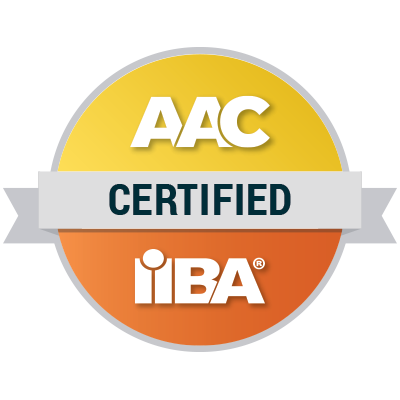BA Apocalypse
The year is 2039. The last Business Analyst looks up at the scorched sky. She dodges behind a cubicle, hoping against hope that the AIs won’t spot her as she forages among the desks for Post-It notes and Sharpies…

Business analysis developed as a profession in a world where most big companies realized the need for information management and business process automation had to build software applications to do that. BAs played a critical role as a bridge between the people running the business and doing the work of the business and the information technology professionals who built those applications. Software projects were significant change efforts that required large investments in time and funding, and so you needed professionals to make sure that you built the right software.
That traditional business analysis role is rapidly fading, driven by the following changes in how companies operate in a rapidly changing business environment:
The growth of Agile and the productization of IT.
If you’re still learning how to adopt agile methods, you’re already behind the curve. Agile is the mainstream approach to software development today. In the next decade, you can expect to see projects disappear along with it as most organizations move to a product model for funding and developing their applications. Applications will go from traditional development approaches to continuous funding, when they’re kept in-house at all.
Applications moving to off-the-shelf and subscription models.
Most business processes don’t require custom applications to support them anymore. Companies are finding that they can purchase off-the-shelf solutions, subscribe to SaaS applications, or tailor an existing product to support their process for far less than it would take to build one in-house.
The rise of customer experience (CX) as a key competitive differentiator.
As back-end processes rely more on products, companies will use the overall experience and accessibility of their front-end applications as a major competitive differentiator. the customer experience interacting with apps, chat bots, AI, and processes will determine who wins and loses in many industries.
Automation of routine business analysis tasks.
AI and ML applications will be able to use data from business processes to identify areas of improvement, review legislation and regulations to generate business rules, and chat bots will start to interview stakeholders. Data models will be generated from existing data. Process mining will create process models.
Remote and distributed teams becoming the norm.
Location is increasingly less important for companies. Stakeholders don’t exist in one time zone or culture and need to collaborate using tools that directly support and automate much of the requirements development process.
Much as many business analysis professionals may prefer to think of themselves as business and not technology professionals, the reality in many companies is that the line between the two is growing thinner every day. If you want to be successful in this new business environment, you’re going to have to be able to deliver value to your business in ways other than developing requirements.
On September 26, join Stefan Bossuwé, Joanne Dong, and Adrian Reed for a panel discussion moderated by Kevin Brennan on the future of business analysis. The panelists will each share their experiences and tips for creating value in this new environment and provide strategies for how you can survive the coming BA apocalypse.
Register for the Webinar: Are You Prepared For The BA Apocalypse?
Want to find out how business analysts are adapting to Agile? Take a look at this
CERTIFY YOUR FUTURE
Agile Analysis Certification (IIBA®-AAC)
For a limited time, save 15%* off the AAC exam fee when you pay for your exam by September 30, 2019. Act fast before it’s too late!
